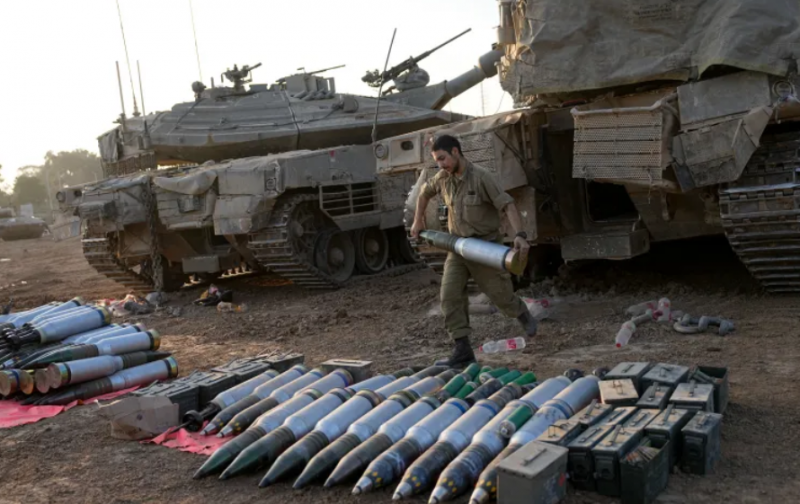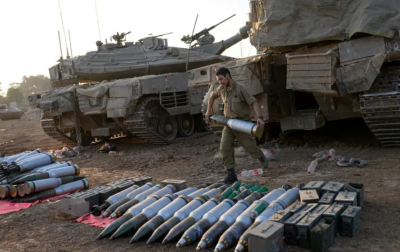The unprecedented war on the Gaza Strip has led the Israeli army to significantly conserve ammunition in anticipation of an escalation in the north, but this has come at the expense of performance and caused considerable confusion. According to a report by Haaretz based on testimonies from soldiers and reservists titled "Massive Chaos," the army used munitions dating back to 1953 and shells designated solely for training purposes.
Haaretz reported that the mobilization of reservists during the early months of the war was substantial, allowing the army to fill personnel shortages. However, it had to conserve ammunition to the extent of resorting to nearly expired shells from the Korean War, and fluctuations in supply became a logistical and operational headache, significantly increasing the rate of misfires and aiming errors.
The newspaper noted that the ammunition problem was most evident in the artillery, where it is believed that the cannons purchased from the U.S. military in the 1970s have reached the limits of their mechanical efficiency. Haaretz stated that the army leadership clearly explained to the troops the importance of conserving ammunition in preparation for escalations with Hezbollah.
Moreover, it added that Israel has grown accustomed to short combat rounds in recent decades, where ground forces are employed in densely populated residential areas like Gaza, greatly reducing artillery use. However, the current conflict has changed this dynamic, with artillery accompanying battles on the northern front and in Gaza, sometimes necessitating direct support for ground forces rather than merely shelling from behind the separation barrier.
Haaretz highlighted one of the complexities within the artillery units, noting that the shells differ from those used in rifles or tank cannons, and the gunners cannot see the target.




